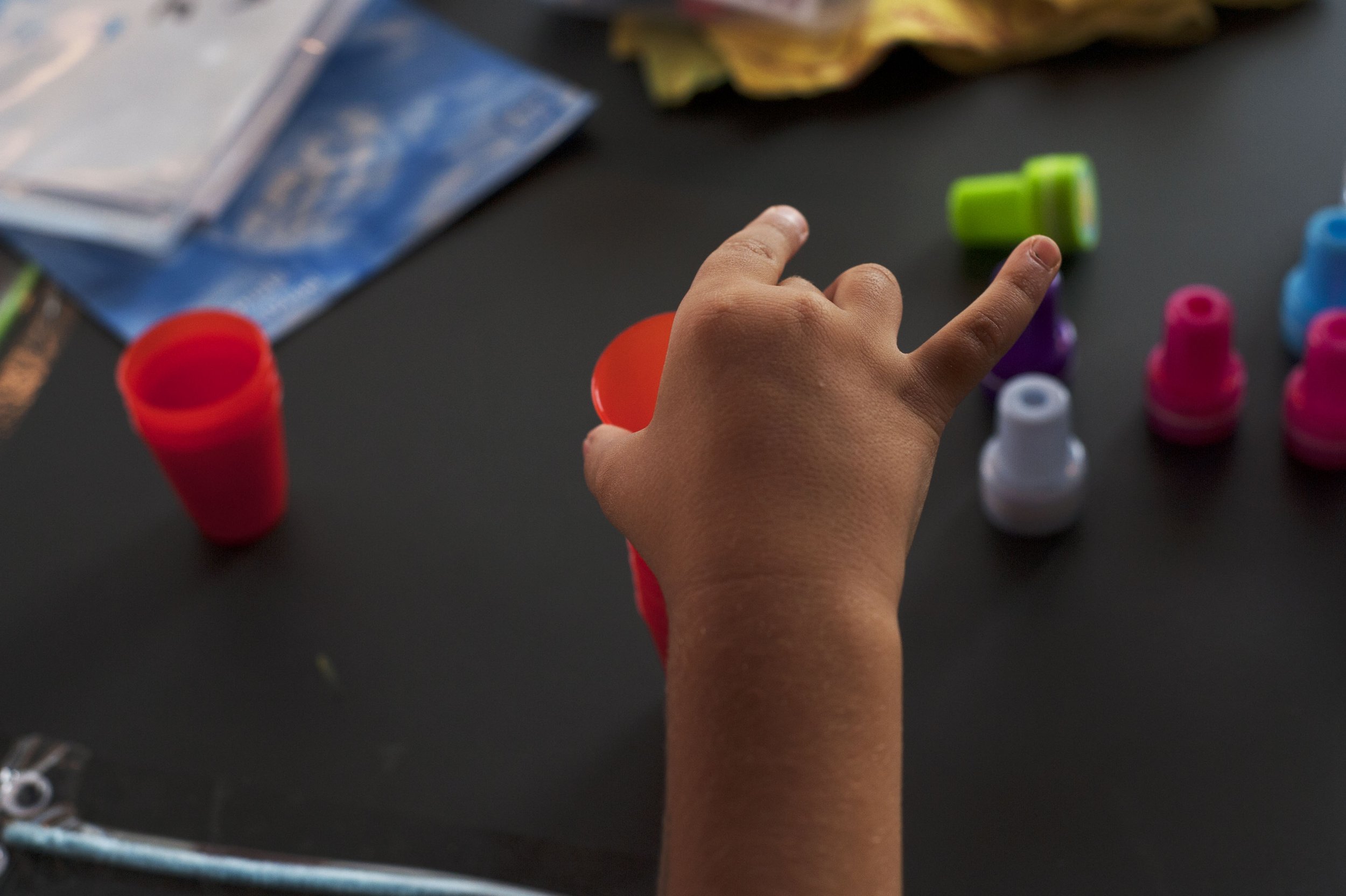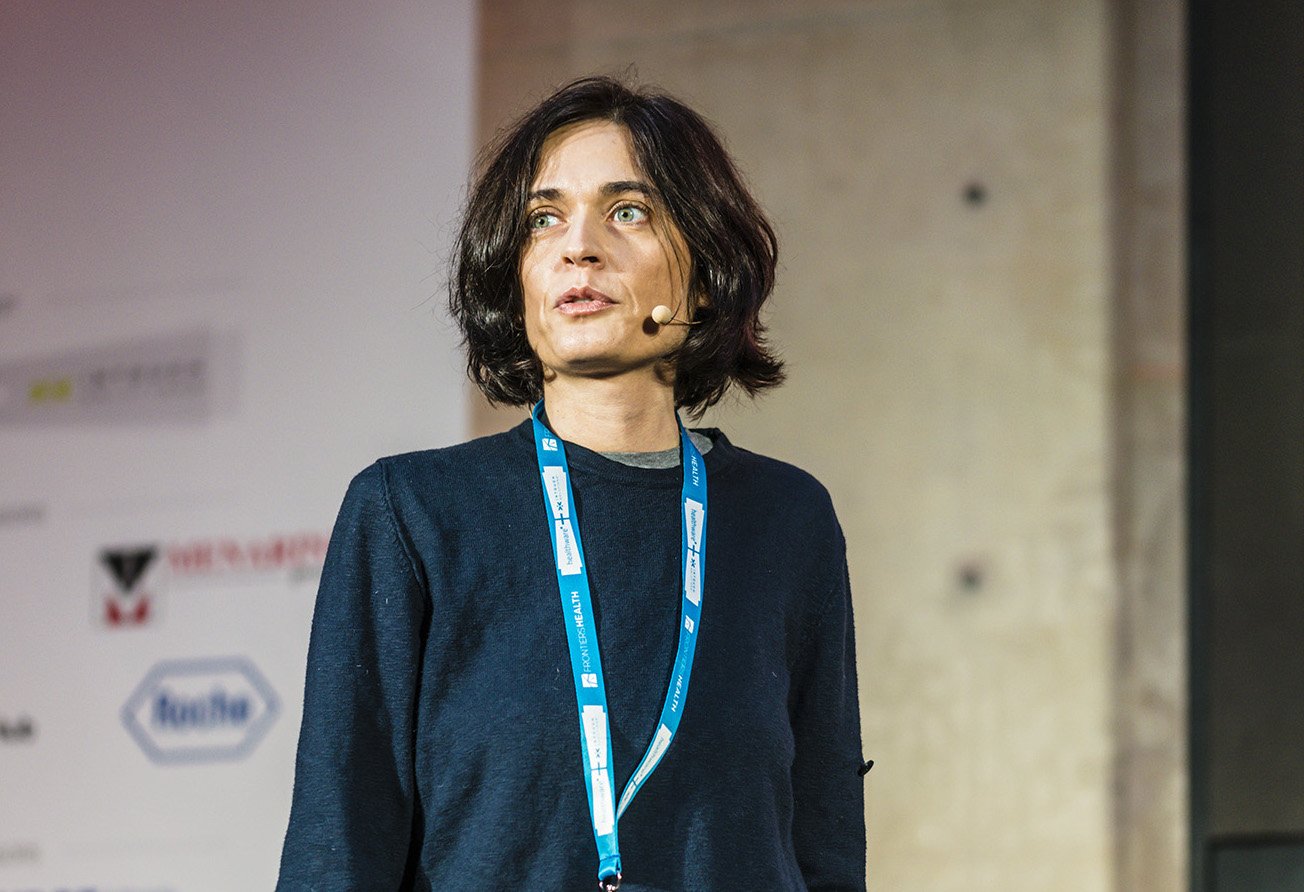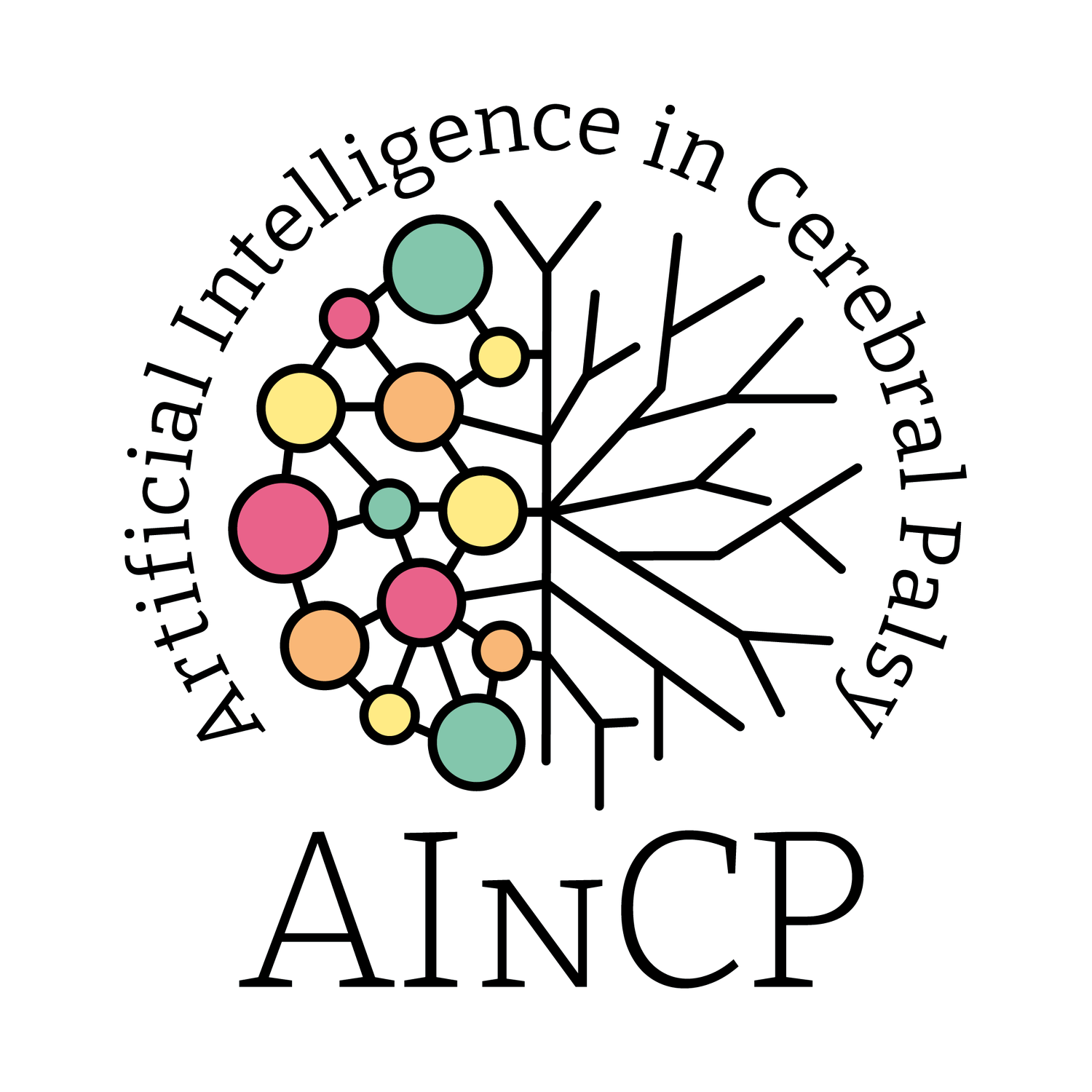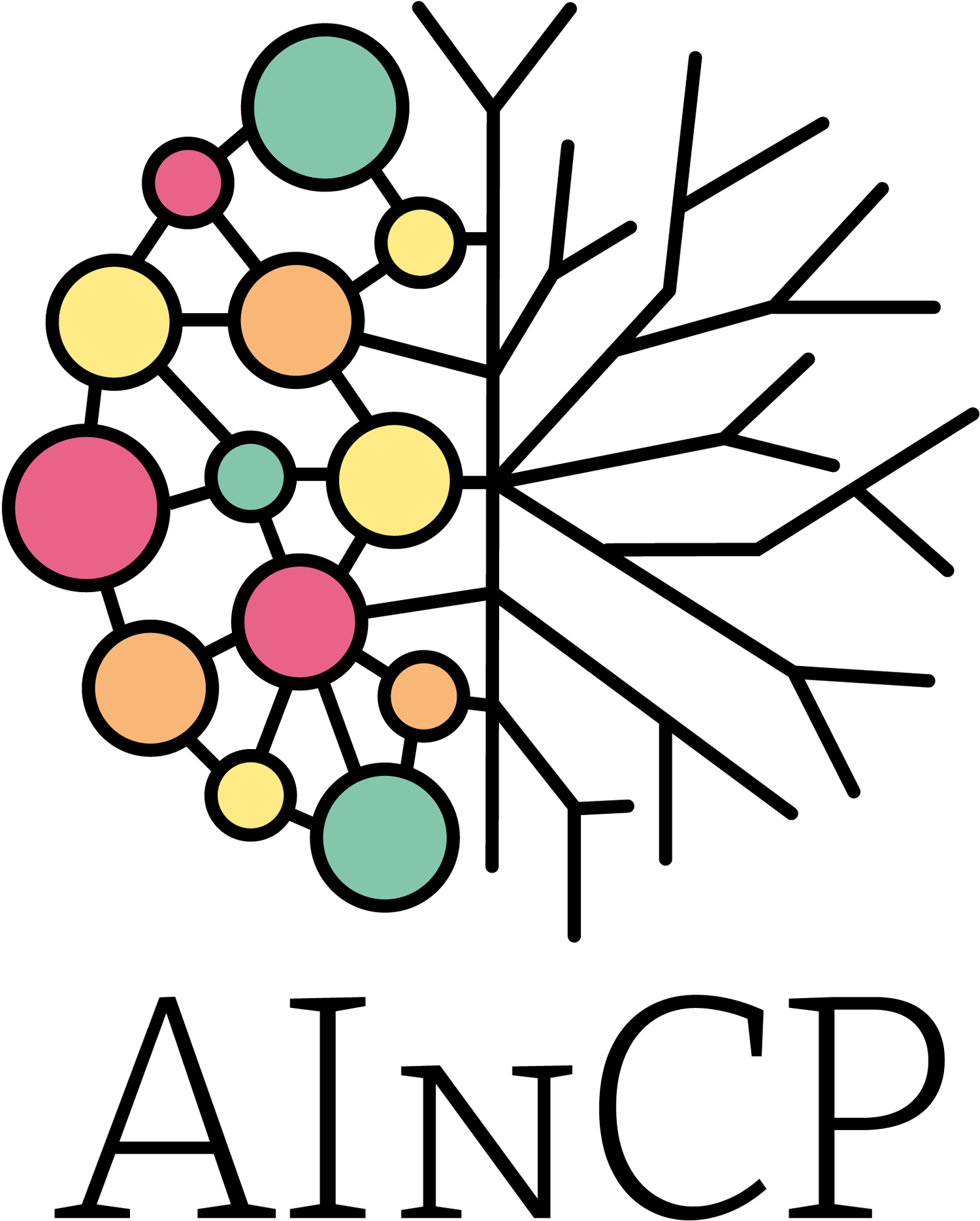
Unilateral Cerebral Palsy is the most common neurological chronic disease in childhood with a significant burden on children, their families and health care system.
Our project aims to develop evidence-based clinical Decision Support Tools for personalised functional diagnosis, Upper Limb assessment and home-based intervention for children with UCP, by developing, testing and validating trustworthy Artificial Intelligence and cost-effective strategies.
AINCP is a Digital Health project funded by the European Union and led by the University of Pisa.
Research results are progressively published here.

Our approach
Clinical diagnosis
Establish a clinical diagnosis and accurate prognosis for treatment response of individual Unilateral Cerebral Palsy profiles, by employing a multimodal approach including clinical phenotyping, advanced brain imaging and real-life monitoring of Upper Limb function.
The AInCP will build upon personalised diagnostic and rehabilitative Decision Support Tool to be developed and validated through large observational and rehabilitation studies, including at least 200 and 150 children with UCP, respectively.
Personalised home-based treatment
Provide personalised home-based treatment, from advanced Information Communication Technologies and Artificial intelligence technologies.
Multidiscipline
AINCP uses a multidisciplinary approach, where all project collaborators (clinicians, data scientists, physicists, engineers, economists, ethicists, small medium-sized enterprises, children and parent associations) will work closely together in building the solution.
Innovation
This approach will hinge on multi-dimensional data, sets of innovative devices and fair AI-based algorithms, clinically effective and able to reduce users and market barriers of acceptability, reimbursability and adoption of the proposed solution.
Project Boards
-
The General Assembly is the highest level decision-making body in the project.
Led by: Giuseppina Sgandurra and Giuseppe Prencipe - UNIPI
Giovanni Cioni - FSM
Rocío Palomo - UCLM
Matteo Cianchetti - SSSA
Wil van Dommelen - NOLDUS
Francesca Fedeli - FTS
Marco Pirini - KHYMEIA
David Berghold - TYM
Roslyn Boyd - UQ
Fiorella Battaglia - UNISALENTO
Hilde Feys - KU Leuven
-
The Executive Board has the principal role of delivering the proper execution and implementation of the decisions of the General Assembly and of proposing the General Assembly any changes in the project or consortium plan.
Led by: Giuseppina Sgandurra and Giuseppe Prencipe - UNIPI
Giovanni Cioni - FSM
Rocío Palomo - UCLM
Martina Maselli - SSSA
Wil van Dommelen - NOLDUS
Francesca Fedeli - FTS
Marco Pirini - KHYMEIA
David Berghold - TYM
Roslyn Boyd - UQ
Fiorella Battaglia - UNISALENTO
Lisa Mailleux - KU Leuven
-
The Innovation Management Board has the role of identifying innovative approaches within AINCP implementation program and seeking synergies with governments, national and international organizations, civil society organizations, private sector and communities instrumental in carrying out the project.
Led by: Giuseppe Prencipe and Corrado Priami - UNIPI
Chiara Bernardi and
Pamela Federighi - FSM
Angel Basco and
Cristina Lirio - UCLM
Leopoldo Trieste - SSSA
Wil van Dommelen - NOLDUS
Roberto D'Angelo - FTS
Marco Pirini - KHYMEIA
David Berghold - TYM
Alex Pagnozzi and
Jurgen Fripp - UQ/CSIRO
Fiorella Battaglia - UNISALENTO
Hilde Feys - KU Leuven
-
The Communication Board takes care of all communication activities for the project.
Led by: Francesca Fedeli - FTS
Silvia Filogna - UNIPI
Roberta Rezoalli - FSM
Purificacion Lopez - UCLM
Francesco Ceccarelli - SSSA
Wil van Dommelen - NOLDUS
Sofia Toffanin - KHYMEIA
David Berghold - TYM
Jurgen Fripp - UQ-CSIRO
Loredana De Vitis - UNISALENTO
Alexia Kalkantzi - KU Leuven
-
The Ethics Advisory Board has the role of guiding and advising the Consortium in all ethical aspects involved during the research activities.
Led by: Fiorella Battaglia - UNISALENTO
Andrea Guzzetta - UNIPI
Olena Chorna - FSM
Helena Romay - UCLM
Giuseppe Turchetti - SSSA
Wil van Dommelen - NOLDUS
Francesca Fedeli - FTS
Marco Pirini - KHYMEIA
Iris Jakob - TYM
Jurgen Fripp - UQ/CSIRO
Lisa Mailleux - KU Leuven
PUBLIC DELIVERABLES
PUBLIC DELIVERABLES
People
-

Prof. Giuseppina Sgandurra
Principal Investigator - Executive Board
Università di Pisa, Italy
-

Prof. Giuseppe Prencipe
co-Principal Investigator - Executive Board
Università di Pisa, Italy
-

Dr. Francesca Fedeli
Partner - Communication Board
FTS, Italy
-

Prof. Giovanni Cioni
Partner
IRCCS Fondazione Stella Maris, Italy
-

Prof. Roslyn Boyd
Partner - Executive Board
CSIRO and University of Queensland, Australia
-

Prof. Rocío Palomo
Partner - Executive Board
Universidad de Castilla - La Mancha, Spain
-

Prof. Hilde Feys
Partner - Executive Board
KU Leuven, Belgium
-

Prof. Nana Nino Tatishvili
Partner - David Tvildiani Medical University, Georgia
-

Dr. Matteo Cianchetti
Partner - Executive Board
Scuola Superiore Sant’Anna di Pisa, Italy
-

Dr. Wil Van Dommelen
Partner - Executive Board
Noldus, The Netherlands
-

Dr. Marco Pirini
Partner - Executive Board
Khymeia, Italy
-

Dr. Fiorella Battaglia
Partner - Ethics Board
Università del Salento, Italy
-

Dr. David Berghold
Partner – Executive Board
Tyromotion, Austria

